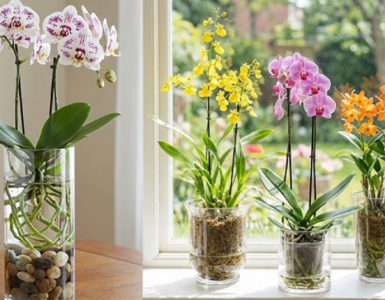Bitter Leaf (Vernonia amygdalina), known for its distinctive taste and medicinal properties, has long been celebrated in traditional medicine across various cultures. Often overlooked for its bitter flavor, this leafy green plant holds a treasure trove of health benefits that are nothing short of miraculous. From supporting digestion to combating chronic diseases, bitter leaf stands as a testament to nature’s healing prowess.
Digestive Health:
One of the primary benefits of bitter leaf is its positive impact on digestive health. Rich in fiber, it aids in digestion by promoting regular bowel movements and preventing constipation. Additionally, bitter leaf contains compounds that stimulate the secretion of digestive enzymes, enhancing nutrient absorption and overall gut health. Whether consumed raw or brewed into a tea, incorporating bitter leaf into your diet can soothe gastrointestinal discomfort and promote digestive efficiency.
Immune Support:
Bitter leaf is a powerhouse of antioxidants, including flavonoids, phenolics, and vitamins A and C. These compounds work synergistically to strengthen the immune system, defending the body against harmful pathogens and reducing the risk of infections. Regular consumption of bitter leaf may help fortify the body’s natural defenses, leading to a stronger, more resilient immune response.
Anti-Inflammatory Properties:
Inflammation is a common underlying factor in many chronic diseases, including arthritis, diabetes, and heart disease. Bitter leaf contains potent anti-inflammatory compounds that help mitigate inflammation and alleviate associated symptoms. Studies have shown that the bioactive components in bitter leaf can inhibit the production of pro-inflammatory cytokines, thereby reducing inflammation and promoting tissue repair. Incorporating bitter leaf into your diet may offer natural relief from inflammatory conditions and contribute to long-term wellness.
Blood Sugar Regulation:
For individuals struggling with diabetes or insulin resistance, bitter leaf may offer valuable support in blood sugar management. Research suggests that bitter leaf possesses hypoglycemic properties, meaning it can lower blood glucose levels by enhancing insulin sensitivity and promoting glucose uptake by cells. By including bitter leaf in their diet, individuals with diabetes may experience more stable blood sugar levels and reduced dependence on medication, under the guidance of a healthcare professional.
Liver Health:
The liver plays a vital role in detoxification and metabolic processes within the body. Bitter leaf has been traditionally used to support liver health, thanks to its hepatoprotective properties. Compounds found in bitter leaf help protect the liver from damage caused by toxins, alcohol, and oxidative stress. Furthermore, bitter leaf may promote the regeneration of liver cells and improve overall liver function, contributing to optimal detoxification and metabolic efficiency.
In a world where chronic diseases are on the rise, exploring natural remedies like bitter leaf can offer a ray of hope for better health and wellness. From its digestive benefits to its immune-boosting properties and beyond, bitter leaf has earned its reputation as a miraculous plant with profound health benefits. Whether enjoyed as a culinary ingredient, brewed into a therapeutic tea, or consumed in supplement form, integrating bitter leaf into your daily routine may unlock a wealth of health-enhancing potential. As with any herbal remedy, it’s essential to consult with a healthcare professional before making significant dietary changes, especially for individuals with existing medical conditions or those taking medication. Embracing the power of bitter leaf may be the key to unlocking a healthier, more vibrant life.






Add comment